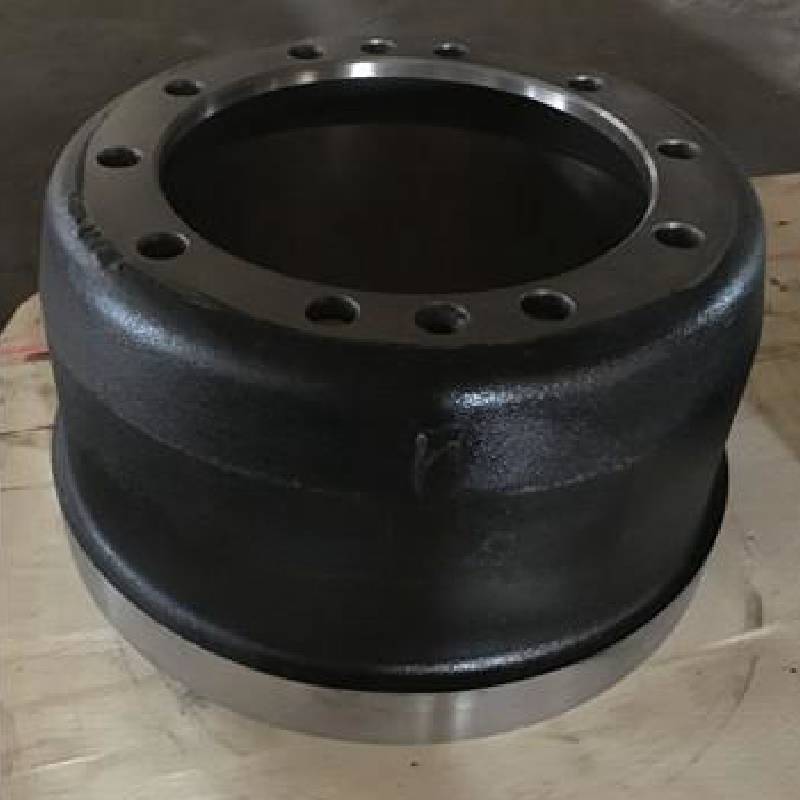Nov . 16, 2024 05:40 Back to list
brake drum stuck
Understanding Brake Drum Stuck Issues Causes and Solutions
When it comes to vehicle maintenance, one of the critical aspects that often gets overlooked by many drivers is the braking system, specifically, the brake drum. Brake drums are integral components of a drum brake system, and when they become stuck, it can pose serious safety risks and lead to costly repairs. In this article, we will delve into the common causes of brake drum issues, the symptoms of a stuck brake drum, and the solutions to rectify the problem.
What Is a Brake Drum?
A brake drum is a cylindrical component that is part of a drum brake system. It houses the brake shoes and is responsible for slowing down the vehicle when the brake pedal is engaged. When the shoes expand against the interior surface of the drum, the friction created slows the wheel's rotation. While this system is generally reliable, several factors can lead to a brake drum becoming stuck.
Common Causes of a Stuck Brake Drum
1. Rust and Corrosion One of the most prevalent causes of a stuck brake drum is rust and corrosion. Over time, moisture can accumulate around the brake components, particularly in areas prone to humidity or where road salt is used in winter. This rust can cause the shoes to adhere to the drum, making it difficult to disengage the brakes.
2. Improper Installation If the brake components are not properly installed, they may not function as intended. Misalignment of the brake shoes or incorrect adjustment can lead to excess wear and can cause the drum to stick.
3. Brake Shoe Wear Worn brake shoes may not retract properly, leading to a scenario where they remain in contact with the drum. This can cause the drum to seize, especially if the vehicle is parked for an extended period.
4. Lack of Maintenance Regular maintenance is essential for any vehicle, particularly the braking system. Neglecting to have the brake components inspected and serviced can lead to the accumulation of dirt and debris, which can seize the drum.
5. Excessive Heat Overheating brakes can cause components to expand and seize. This is often a result of heavy braking or prolonged descents. When the brake drum heats up, it can warp, leading to a misfit with the brake shoes.
Symptoms of a Stuck Brake Drum
brake drum stuck

Recognizing the signs of a stuck brake drum early on can prevent more significant issues down the line
. Common symptoms to watch for include- Grinding Noises If you hear grinding or scraping noises when driving or braking, it could indicate that the brake shoes are stuck against the drum. - Unresponsive Brake Pedal A brake pedal that feels spongy or doesn't return to its normal position may suggest an issue with the brake drum or shoes. - Pulling to One Side If the vehicle pulls to one side when braking, it may indicate that one of the brake drums is stuck while the other side is functioning correctly.
- Increased Stopping Distance A sudden increase in braking distance can signal problems with the brakes, including a stuck drum.
Solutions to Fix a Stuck Brake Drum
If you suspect that your brake drum is stuck, it is essential to address the issue promptly. Here are some potential solutions
1. Inspection Begin with a thorough inspection of the brake system. Check for rust, alignment issues, and any visible signs of wear on the brake shoes and drums.
2. Cleaning and Lubrication Sometimes, a good cleaning can resolve the issue. Remove rust from the drum and brake shoes with an appropriate cleaner. Additionally, lubricate the moving parts to ensure they function smoothly.
3. Replacement of Worn Parts If wear is identified, replacing the brake shoes or even the drums may be necessary to restore proper function.
4. Professional Help If the issue persists or if you are unsure how to proceed, seeking professional assistance is advisable. Certified mechanics have the tools and expertise to effectively diagnose and repair brake issues.
Conclusion
In conclusion, a stuck brake drum can lead to serious safety hazards and should be addressed as soon as it becomes apparent. Regular maintenance, timely inspections, and awareness of the symptoms can go a long way in ensuring your vehicle's braking system functions safely and efficiently. Remember, brakes are not just a component of your vehicle; they are a fundamental aspect of your safety on the road.
-
Scania Brake Drums: OEM Quality for Optimal Safety & Durability
NewsAug.16,2025
-
R.V.I: Advanced Remote Visual Inspection for Precision
NewsAug.15,2025
-
Discover HYUNDA: Innovative Vehicles, Equipment & Solutions
NewsAug.14,2025
-
R.V.I: Unlock Advanced Insights & Real-time Performance
NewsAug.13,2025
-
Kamaz Brake Drum: Durable & Reliable for Heavy Duty Trucks
NewsAug.12,2025
-
Heavy Duty Iveco Brake Drum - Premium Quality & Safety
NewsAug.11,2025
